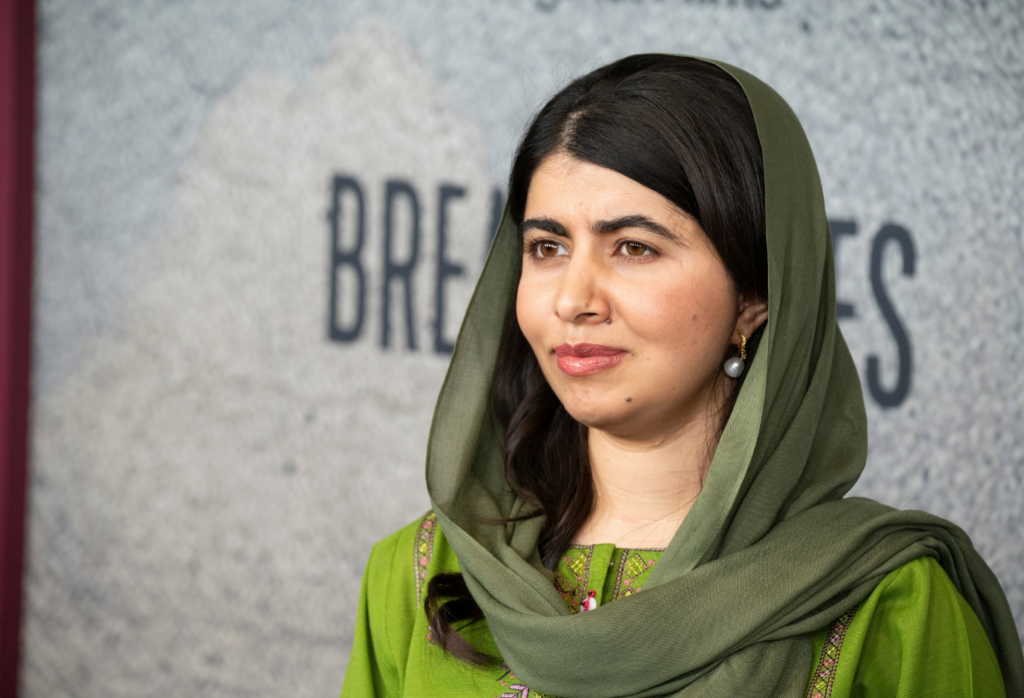Nobel Peace Prize laureate Malala Yousafzai has given a powerful speech at an international education conference, calling on world leaders to hold the Taliban to account for its treatment of girls and women.
Yousafzai, who became the youngest Nobel Peace Prize winner in 2014, spoke to an audience gathered in Pakistan’s capital, Islamabad, for a two-day conference on girls’ education in Muslim countries.
Global experts were present for the inaugural conference to witness her call to action, where she described the issue of girls’ education in Afghanistan as a “crisis”.
“We should begin by recognising what we are up against, a crisis that holds our economy back by hundreds of billions in lost growth, a crisis harming the health, safety and security of our people,” she said. “If we don’t tackle this crisis, our society will not thrive as it should. We will fail to live up to Islam’s fundamental values of seeking knowledge.”
“In Afghanistan, an entire generation of girls is robbed of their future. This conference will not be serving its purpose if we don’t talk about the education of Afghan girls. The Taliban-ruled country is the only one in the world where girls are completely barred from education.”
Ahead of her appearance, Yousafzai told her 1.9 million followers on X that she was excited to join Muslim leaders from around the world for “the critical conference on girls’ education”, reiterating her stance on the importance of “protecting rights for all girls to go to school” and explaining that “leaders must hold the Taliban accountable for their crimes against Afghan women & girls.”
During her speech at the International Conference on Girls’ Education in Muslim Communities: Challenges and Opportunities, which was attended by leaders in education including Pakistan’s education minister, she added that the conference was an encouraging first step towards change.
“We can only have an honest and serious conversation about girls’ educations, if we call out the worst violations of it,” she said.
The event, organised by the Muslim World League and attended by up to fifty Muslim-majority countries, was not attended by anyone from Afghanistan’s Taliban government, though they did receive an invitation.
Pakistani Education Minister Khalid Maqbool Siddiqui said that “no one from the Afghan government was at the conference”.
According to one senior Taliban diplomat in Islamabad, however, “Kabul has not told us anything about this event.”
Since returning to power in August 2021, the Taliban government has systematically stripped away women’s rights in Afghanistan, banning teenage girls from education and women’s rights to access employment, among dozens of other restrictions.
According to the United Nations, the Afghan Taliban have imposed an austere version of religious law akin to “gender apartheid”, and has called for it to be recognised as a crime against humanity.
“Gender apartheid is not merely a theoretical possibility or legal construct, but a real threat and lived reality for millions of women and girls around the world – a reality that is currently not explicitly codified in international law,” UN experts said last year.
“State laws, policies and practices that relegate women to conditions of extreme inequality and oppression, with the intent of effectively extinguishing their human rights, reflect the very core of apartheid systems.”
Today, Afghanistan is the only nation among the 57 members of the Organization of Islamic Cooperation that bans women’s education. Activists and humanitarian organisations have continuously criticised the Taliban’s decision to deny girls’ rights to education, calling it “an abomination and a violation of the UN Charter, the Convention on the Rights of the Child and fundamental human rights.”
Last June, Executive Director Yasmine Sherif of global fund for education, Education Cannot Wait, released a statement, declaring girls’ right to an education as “a fundamental right as outlined in international human rights law.”
“For the people of Afghanistan – men, women, girls and boys – adolescent girls’ education is essential to rebuild Afghanistan and ensure that every Afghan enjoys the universal right to an education,” she said.
Yousafzai’s own charity, Malala Fund has been working with partner organisations in Afghanistan to improve Afghan girls’ access to education. Since August 2021, the organisation has assisted members of the community to evacuate and resettle, as well as facilitate the safe resettlement of more than 200 additional Afghan human rights defenders, according to its website.
“We launched our Afghanistan Initiative in 2024 to restore girls’ access to education and advance the movement to end gender apartheid,” the fund states. “The initiative aims to raise global awareness of gender apartheid and strengthen networks of Afghan women activists and organisations campaigning for the recognition of gender apartheid in international law. Additionally, it supports alternative and digital learning programmes for girls while they are banned from secondary schools.”
Meanwhile, Pakistan faces its own education problem, with more than 22 million school-aged students out of school, and more than three quarter of children reaching age ten without any reading skills, according to recent figures.
Pakistani Prime Minister Shehbaz Sharif, who attended the education conference over the weekend, said preventing girls from receiving an education is “tantamount to denying their voice.”
“The Muslim world, including Pakistan, faces significant challenges in ensuring equitable access to education for girls,” Sharif said.
“Denying education to girls is tantamount to denying their voice and their choice, while depriving them of their right to a bright future.”
Muhammad al-Issa, a Saudi cleric and secretary-general of the Muslim World League, added that “religion is no grounds for blocking girls from school”.
“The entire Muslim world has agreed that girls’ education is important,” he said. “Those who say that girls’ education is un-Islamic are wrong.”



